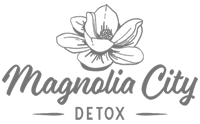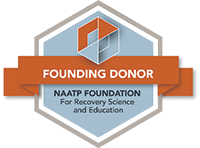FIRST RESPONDER ADDICTION TREATMENT IN HOUSTON, TEXAS
Unfortunately, this significantly increases the risk of substance abuse and addiction. Seeking help can be demanding for first responders due to the stigma of mental health issues and addiction. First responder addiction treatment teaches healthy coping skills to avoid falling back into drug or alcohol abuse.
First responders often witness difficult occurrences and find themselves in distressing scenarios, such as accidents, natural disasters, and acts of violence. This continuous exposure has the potential to trigger post-traumatic stress disorder (PTSD), anxiety, and depression. Unfortunately, to deal with this trauma, some turn to substance to cope. In these cases, our PTSD and substance abuse treatment in Houston can be a life-changing program.
First responders struggle with chronic stress and burnout due to the long hours, high-pressure situations, and demanding schedules. The nature of the job can lead to emotional exhaustion, a decline in mental well-being, and a decrease in job satisfaction.
In many first responder communities, there is a stigma surrounding mental health. Because their work is so demanding and they are supposed to be brave, many are reluctant to seek first responder addiction treatment or mental health treatment.
Disrupted and irregular sleep patterns are common for first responders. Sleep deprivation can significantly affect mental health. It leads to poor concentration, irritability, and an increase in mental health disorders.
Due to the demanding nature of the job, it puts a strain on personal relationships. This can lead to trouble balancing work and personal life. Adding this to other stressors they encounter can negatively affect their overall well-being.
Between the high stress levels, exposure to trauma, and an increase in mental health disorders, the risk of developing a substance use disorder is extremely high for first responders. Some first responders turn to drugs or alcohol to cope with the challenges of the job. This can lead to addiction and further deterioration of their mental health.
First responders and their families must understand and recognize the signs of mental health issues and substance abuse. First responder addiction treatment specializes in helping first responders find healthy ways to cope with the demands of their job. If you or someone you love is dealing with substance and mental health issues, check out our dual diagnosis treatment in The Woodlands, Texas.
What Stress and Difficulties Do First Responders Encounter?

Many calls first responders go to can be emotionally and mentally distressing. Exposure to traumatic events such as violent crimes, accidents, and natural disasters can impact their mental well-being. Regularly dealing with and witnessing these situations can heighten stress levels.
Every day, multiple times a day, first responders must make split-second decisions. These decisions can have life-or-death consequences. Making these decisions under extreme circumstances can contribute to high stress levels.
First responders work physically demanding jobs. This can impact their mental well-being. Being physically exhausted raises the effects of stress and increases the risk of mental health issues.
Aiding and supporting people in distress can be emotionally challenging for first responders. They often witness extreme suffering, human tragedy, and loss, leading to emotional strain and indirect trauma. As the emotional burden accumulates over time, it impacts their mental well-being.
There is a culture of self-reliance within the first responder community. There is also a stigma surrounding seeking help for mental health issues. It is often seen as a sign of weakness or admitting you are struggling. Unfortunately, this stops many from seeking addiction or mental health treatment.
First responder addiction treatment is very important. They have unique needs that only a specialized treatment program can understand.
Request a Confidential Callback
How Do the Stress and Difficulties of Being a First Responder Encourage the Use of Alcohol or Drugs?
There are a variety of stresses and difficulties that can encourage substance abuse among first responders. Their friends and family need to understand the reasons for and recognize signs of substance abuse.
The stress and tough challenges that come with being a first responder often push people to look for ways to feel better. Because the job can be really hard emotionally, some may start using drugs or alcohol to make themselves feel less upset, even if it’s just for a little while.
The job of a first responder can be mentally challenging, leading to problems like feeling worried, sad, or scared. Without the right help, they might use drugs or alcohol to cope with their struggles.
First responders often work closely together, making it seem normal or okay to use drugs or alcohol. Sometimes, the people they work with might even encourage them to use these things to fit in or deal with stress.
Drugs and alcohol are things that first responders can get easily. When first responders feel stressed, they might turn to these substances because they know them well and are easy to find.
Some first responders might fear what others will think if they ask for help with their mental health or addiction. This can stop them from getting the right support. So, they might use drugs or alcohol secretly because they think it’s a quick way to feel better.
Although the rate of drug and alcohol abuse is higher among first responders than the general public, not all first responders use substances to cope. Building healthy coping skills can lower the risk of needing first responder addiction treatment.
However, the unique pressures and emotional stress that first responders go through can make them more likely to struggle with drugs or addiction. If we understand these things that make the risk higher and create systems to help them – like first responder addiction treatment – we can make things better for them.
Magnolia City Offers First Responder Addiction Treatment
- Medical Detox
- Inpatient Treatment
- Outpatient Treatment
- Aftercare Services
Our program recognizes the specific stressors and demands of being a first responder and aims to provide effective support for their recovery journey.

Many people think going into rehab is the first step in treatment. However, for most people, the first step is our Houston medical detox program. This is a crucial step as it helps rid the body of toxins. Depending on the addiction, withdrawal symptoms can range from uncomfortable to severe.
Our medical detox program is a safe environment, and medical professionals monitor individuals. If needed, they provide medications to minimize withdrawal symptoms, including cravings.
It is not recommended to detox alone. Some withdrawal symptoms can be life-threatening. Even as a first responder with medical experience, you should seek the help of professionals specializing in addiction treatment.
Once detox is complete, typically 5 to 7 days later, the next step is immediately entering a treatment program. Inpatient treatment is typically the most successful and preferred treatment option. Our inpatient program uses a combination of traditional and holistic care.
During inpatient treatment, you live at the facility, which allows you to focus on your recovery without outside influences and distractions. One benefit of inpatient treatment is the 24-hour supervision and monitoring. This allows you access to therapists, counselors, and peer support any time, day or night.
Not everyone struggling with an addiction needs inpatient treatment. Furthermore, not everyone can step away from life and their responsibilities to attend treatment. Outpatient treatment is an excellent option if you are looking for another treatment option.
You attend outpatient therapy during the day and go home in the evenings. This allows you to work, attend school, and care for your family. Your therapy sessions are the same as in inpatient treatment. But, you may not have access to additional services offered in inpatient treatment.
The recovery journey isn’t over when you complete first responder addiction treatment. Recovery is a life-long journey. This means you have to work on your recovery every day. If not, the risk of relapse increases.
Building a healthy support system is crucial to recovery. Support groups such as Alcoholics Anonymous (AA) or Narcotics Anonymous (NA) are a great way to share what you are dealing with and receive advice from those who understand.
Aftercare services can include:
- Counseling and therapy
- Mentorship programs
- Sober living homes
- Job skills training
Start First Responder Addiction Treatment Today
Are you or a loved one struggling with mental health issues or substance abuse? As a first responder, it can be difficult to admit you need help when you are always helping others. But you can’t help others if you are struggling yourself. Contact us today and find out how we can help you.






